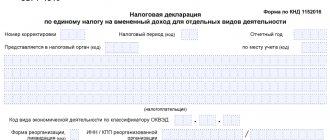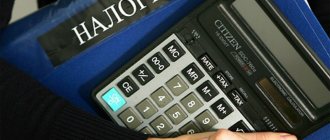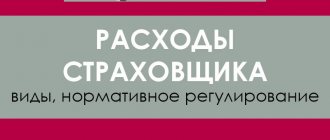The tax system based on a single tax on imputed income, or colloquially “imputed income,” refers to preferential regimes, the use of which significantly simplifies the life of an entrepreneur. UTII allows you not to pay taxes on profit/income, property and added value and not to do accounting in the usual sense. It is enough just to take into account the physical indicators of activity and submit a tax return once every 3 months.
Many entrepreneurs would switch to such a work scheme, but this is not available to everyone and is not always profitable. The Tax Code defines a number of areas in which a company can count on imputation. The list is limited to specific types of activities that fall under UTII, mainly in the field of consumer services and trade.
Restrictions and conditions for the use of UTII
UTII is introduced by regulatory legal acts of representative bodies of municipal districts, city districts, and cities of federal significance. This is a voluntary taxation regime, which only covers 14 types of activities - all of them are listed in paragraph 2 of Art. 346.26 Tax Code of the Russian Federation.
Types of activities for UTII
- domestic services;
- veterinary services;
- repair, maintenance and washing services for motor vehicles;
- services for the provision of parking spaces and storage of motor vehicles;
- motor transport services for the transportation of passengers and goods provided by organizations and individual entrepreneurs who own or otherwise have the right to no more than 20 vehicles intended for the provision of such services;
- retail trade through shops and pavilions (hall area - no more than 150 sq.m);
- retail trade through the objects of a stationary trading network that does not have trading floors, as well as objects of a non-stationary trading network;
- public catering services provided through public catering facilities (the area of the visitor service hall is no more than 150 sq.m);
- public catering services through public catering facilities that do not have a customer service area;
- distribution of outdoor advertising using advertising structures;
- advertising using the external and internal surfaces of vehicles;
- temporary accommodation and accommodation services (total area of premises - no more than 500 sq.m);
- services for the transfer for temporary possession and use of retail spaces located in facilities of a stationary retail chain that do not have trading floors, facilities of a non-stationary retail chain, as well as catering facilities without a customer service area;
- services for the transfer of temporary possession and use of land plots for the placement of stationary and non-stationary retail chain facilities, as well as public catering facilities.
For those using UTII, there are restrictions on the number of employees - no more than 100 people, as well as a limit on the share of other organizations - no more than 25%.
What types of activities does UTII choose?
Organizations providing:
- Household and veterinary services, vehicle repair services.
- Parking space for vehicles.
- Public catering in areas up to 150 sq. meters and without service halls.
- Advertising services on advertising structures.
- Accommodation spaces with a total area of up to 500 sq. m. meters.
And also entrepreneurs:
- engaged in retail trade on an area of up to 150 sq. meters and without trading floors, as well as non-stationary retail chains - on-site and off-site trading;
- providing rental space for trade without trading floors;
- providing temporary use of a plot of land for the location of retail chains.
What taxes does “imputation” exempt from?
Legal entities on UTII are exempt from paying:
- income tax;
- VAT;
- tax on property of organizations (except for property, the tax on which is calculated based on the cadastral value).
Individual entrepreneurs do not pay UTII:
- personal income tax;
- VAT;
- property tax for individuals.
The UTII rate is 15%. The deflator coefficient for 2021 is 1.915. And for 2021 - 2,009.
Local authorities can change the deflator coefficient, and this should be monitored. Therefore, by the beginning of the year, look for a local document that approves UTII in your municipality. It will indicate the value of the correction factor K2. K2 values can be set in the range from 0.005 to 1 inclusive (Clause 7, Article 346.29 of the Tax Code of the Russian Federation).
For those who have chosen UTII, it does not matter how much they actually earn. The imputed base (the amount of imputed income) plays a role.
Online accounting for self-employed entrepreneurs who do not understand accounting. Beginning entrepreneurs get a year as a gift!
To learn more
Taxpayers
Taxpayers are those individual entrepreneurs and organizations that conduct the above types of activities and have expressed a desire to switch to the imputed system (or have already switched) and, accordingly, meet the above conditions.
We register and deregister within the time limits specified in the Code: 5 days from the moment we begin to carry out or complete work on the types of activities named in Chapter 26.3.
The use of the imputed system exempts you from paying income tax, value added tax (except for imports), and property tax, but only for those transactions that are carried out specifically according to imputation.
For individual entrepreneurs, there is an exemption from personal income tax instead of income tax.
If there is an obligation to pay other taxes (on transport, land, minerals, etc.), then they are paid in accordance with the general procedure.
When simultaneously conducting business transactions subject to UTII and transactions taxed under another taxation system, records of property, expenses, income, employees, etc. must be kept separately, that is, all transactions that take place under imputation and other taxation regimes are reflected in different accounts or subaccounts, or something else.
Everyone sets up convenient accounting for themselves, which will allow them to reliably get an idea of the transactions carried out under each taxation system.
If the taxpayer has violated the conditions for applying the imputation based on the number and (or) the share of legal entities in the formation of the authorized capital, then he switches to the general tax regime (general taxation regime, if he does not have a simplified tax regime) from the beginning of the quarter when the non-compliance with the requirements of the Tax Code occurred.
Formula for calculating UTII
When calculating tax, a formula is used that contains the following values:
- physical indicator (depends on the activity: the number of workers together with individual entrepreneurs, the parking area of the trading floor, etc.);
- basic profitability (indicated for each type of activity in Article 346.29 of the Tax Code of the Russian Federation);
- coefficients K1 (regulated by the Ministry of Economic Development and set for each year) and K2 (regulated by the municipality);
- tax rate (15% of the amount of imputed income).
How is UTII tax calculated?
UTII for the quarter = (tax base (imputed income for the quarter) × tax rate) – insurance premiums
The tax base is determined as follows:
Tax base (imputed income for the quarter) = basic profitability for the month × (the value of the physical indicator for the 1st month of the quarter + the value of the physical indicator for the 2nd month of the quarter + the value of the physical indicator for the 3rd month of the quarter) × K1 × K2
Deduction on cash register when using UTII
Individual entrepreneurs using UTII have the right to claim a deduction for the purchase of cash registers. Its size is 18,000 rubles. for each cash register. Thus, if you purchased two devices, you can count on a maximum deduction of 36,000 rubles.
Only individual entrepreneurs have the right to deduction. But there are also restrictions for them - the period when the cash register is registered matters.
Individual entrepreneurs on UTII in the field of retail trade or catering with employees could qualify for a deduction if they registered a cash register from February 1, 2021 to July 1, 2021. Thus, they were entitled to a deduction when purchasing a cash register only in 2021.
If an individual entrepreneur is not engaged in retail business and catering with hired employees, then he can claim a deduction if he registered a cash register before July 1, 2021.
To take advantage of the cash register deduction, fill out section 4 of the UTII declaration.
We recommend that you separately read the article “How to get a deduction for the purchase of an online cash register.”
Ban on the sale of labeled goods in 2020
In 2021, the Ministry of Finance plans to introduce a ban on the sale of labeled goods when carrying out business activities on UTII. Products subject to mandatory labeling are approved by Order of the Government of the Russian Federation No. 792-r dated April 28, 2018. Moreover, mandatory labeling of goods was planned to be carried out in several stages, starting from July 1, 2021:
1. From July 1, 2021, tobacco products must be labeled. From July 1, 2021, it will no longer be possible to sell unlabeled products. 2. From July 1, 2019, participants in the footwear trade must register in the system, submit applications for code emission registrars and begin marking balances according to a simplified scheme. By February 1, 2021, all participants in the shoe market must master the new procedure. From this moment on, the circulation of unlabeled products will be stopped. 3. From December 1, 2021, product labeling requirements will apply to the following types of consumer goods:
- perfumes and eau de toilette;
- new pneumatic rubber tires and tires;
- clothing made from genuine or composite leather;
- work clothes;
- women's or girls' blouses, knitted blouses and blouses, machine or hand knitted;
- outerwear (coats, short coats, capes, raincoats, jackets, windbreakers, windbreakers and similar products);
- bed, table, toilet and kitchen linen;
- cameras (except film cameras), photo flashes and flash lamps.
And now the main unpleasant news - the President signed Federal Law No. 325-FZ dated September 29, 2019, which supplements Articles 346.27 and 346.43 of the Tax Code of the Russian Federation with new norms, according to which retail trade for the purposes of applying UTII and PSN does not include the sale of three groups of goods subject to mandatory marking:
- medicines for which mandatory labeling is established by Federal Law No. 61-FZ dated April 12, 2010;
- footwear products, the mandatory labeling of which is established by Decree of the Government of the Russian Federation dated April 28, 2018 No. 792-r;
- items of clothing, clothing accessories and other products made of natural fur, the mandatory labeling of which is established by Decree of the Government of the Russian Federation of August 11, 2016 No. 787.
In fact, this means that the use of UTII and PSN is prohibited when selling these labeled goods from January 1, 2020.
Therefore, be careful when choosing a taxation system for 2020 when planning to trade goods that will need to be labeled. The fact is that separate accounting for goods at one retail outlet is impossible in this case. Let's say you left the sale of bags on UTII, and transferred the sale of shoes to the simplified tax system. According to the above law, if tax authorities detect at least one sale of goods subject to labeling, this will lead to the immediate loss of the right to apply UTII.
For individual entrepreneurs on UTII, the introduction of mandatory labeling for a number of goods will mean that as soon as the deadline for introducing labeling for a product that the individual entrepreneur sells on UTII comes, the entrepreneur will be required to switch to a different taxation regime.
The article was updated in accordance with current legislation 10/11/2019
UTII and separate accounting
Since UTII applies to certain types of activities, if you are engaged in something that does not fall under these types, you will have to keep separate records and use several taxation systems.
Simultaneously with UTII, it is reasonable to have another taxation system. Therefore, do not be lazy to notify about the application of the simplified tax system. Most likely, the “simplified” approach with the “income” object will be more profitable for you. Keep in mind that you can only declare your desire to use the simplified tax system from the beginning of the year. To do this, you need to send a tax notice before December 31, 2021.
Let's consider an example: a trade organization has a retail store and uses UTII as part of this activity. But the store has a device for paying for cellular communications, and this activity does not fall under UTII. If there is a simplification, the organization pays a tax rate of 6% (object “income”). If there is no simplified tax system, then under the OSN he pays income tax and VAT.
The mechanism for maintaining separate accounting is prescribed in Art. 346.26 and art. 346.27 Tax Code of the Russian Federation.
How to switch to UTII?
The following are not entitled to apply UTII:
1. Organizations and individual entrepreneurs who are engaged in leasing gas filling stations and gas stations. 2. Organizations and individual entrepreneurs with an average number of employees (for the previous calendar year) of more than 100 people. 3. Organizations and individual entrepreneurs that operate under a property trust management agreement or a simple partnership agreement. 4. Institutions in the field of health care, social security, education, and public catering. 5. Organizations in which the share of participation of other legal entities is more than 25% (there are some exceptions here). 6. Organizations belonging to the category of “largest taxpayers”. 7. Organizations and individual entrepreneurs selling goods subject to mandatory labeling.
You can switch to UTII in 2021 on a voluntary basis. To do this you must submit an application:
- according to the UTII-1 form - for organizations;
- according to the UTII-2 form - for individual entrepreneurs.
An application for transition to the Unified Tax on Imputed Income must be submitted within five working days from the date of commencement of business activities. If this deadline is violated, the fine will be 10,000 rubles.
The document must be submitted to the tax service:
- at place of residence - for individual entrepreneurs;
- by location - for organizations.
Within five days from the date of filing the application at the tax office, the entrepreneur will be given a notice of registration as a UTII payer.
Please note that the transition from UTII to other tax regimes is possible only from the next calendar year. At the same time, the Tax Code of the Russian Federation states that it is possible to switch to the Simplified taxation system from the beginning of the month in which activities on UTII were terminated.
Features of the use of UTII within certain types of activities
Let's consider several types of activities to take into account important details
Domestic services
UTII includes the types of activities included in OKUN. In addition, they must be named in the local list of household services, that is, UTII can be applied to these types of activities in a particular municipality.
The Tax Code provides a more precise definition of household services: these are paid services that are provided to individuals. But here there are subtleties.
So, for example, an atelier that sews curtains falls under UTII. If curtains are purchased by an individual, the organization pays UTII from this income. If the order is made on behalf of an organization, that is, from a legal entity, UTII is not applied to this income - this amount must be paid either within the framework of the simplified tax system or within the framework of the OSN.
Another example: a beauty salon provides haircutting, hair coloring, etc. services. In addition, the salon has a solarium, which is not subject to UTII. Tax authorities often pay attention to such cases.
Various situations of using UTII in household services are given in Information Letter of the Presidium of the Supreme Arbitration Court of the Russian Federation dated March 5, 2013 No. 157.
Retail
As you know, trade can be carried out in halls, without trading floors, it can be delivery and delivery. But only retail trade falls under UTII when goods are purchased for personal, family or other use not related to business activities. And a retail purchase and sale agreement is considered concluded if the buyer is given a cash receipt, sales receipt or other document confirming payment.
Previously, tax authorities were interested in who the trade was carried out - a legal entity or an individual. But documents such as Information Letter of the Presidium of the Supreme Arbitration Court of the Russian Federation dated March 5, 2013 No. 157 and Letter of the Federal Tax Service of the Russian Federation dated March 1, 2010 N ShS-22-3 / [email protected] appeared, which say that now the tax authorities do not care who buys, but now they check for the existence of a purchase and sale agreement.
This is important because the use of UTII is permissible if a number of conditions are simultaneously met:
- retail trade refers to entrepreneurial activity aimed at systematically generating profit;
- in the municipality where the seller works, the corresponding form of trade has been transferred to UTII;
- A retail purchase and sale agreement has been concluded between the seller and the buyer.
The area of the sales area should not exceed 150 square meters. m. If it changes, then you need to call the BTI, get a new explanation or renew the lease agreement. Then the new area will be taken into account.
Do not forget that UTII does not cover trade in online stores.
Public catering
Here it is important to take into account the area of the service hall - it should not exceed 150 sq.m. This is especially true when some establishments add terraces in the summer.
The area of the hall does not include the kitchen, but dance floors and billiard rooms are included, if they are not allocated separately.







